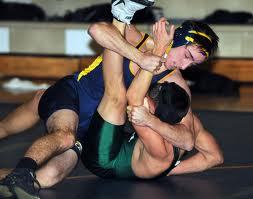Wrestling Match

For as long as I have been a Christian, there has always been a wrestling match going on between faith and reason. As a young believer, doubt was looked at with suspicion, even with disdain and shame. I remember hearing sermon after sermon that put “carnal” labels on thinking, reasoning, and questioning. I know; I preached many of these sermons myself.
How do we learn? How do we grow? It is not through having answers; it is through having questions, lots of questions. Critical thinking takes for granted that we will ask questions, good questions. People who think clearly are healthy people, but they are also people who are not afraid of a good argument.
I have had a copy of this little book for years. Paul and Elder’s work is spot on. It does not mince words. Quickly and succinctly, the authors dive into their main point: If you want to be successful in life, you have to learn the craft of thinking clearly and critically.
I love the emphasis on “intellectual humility” (p. 14) in this little manual; this set the tone of the book for me. Those who are unreflective are unaware of their need to think in new ways. They are content with the way things are. Right is right and wrong is wrong. There is no middle ground, only polar extremes. Fr. Richard Rohr calls this either/or thinking (Rohr, 2009). Again, there is never room for compromise, never room for any possibilities outside of the conventional paradigm. “It is right because it has always been right.” “It’s just the way it is.” Truth, then, becomes subjective. It is not based on logic or reason; it is based on emotion alone. Innate in this kind of thinking is a swarm of logical fallacies including “dogmatism” and “hasty generalizations,” not to mention one “non sequitur” after another. But those who think unreflectively don’t give a damn about truth; they only care about being right, even if the evidence suggests otherwise.
In my experience, Christians are often comfortable with the possibility that some of their beliefs might not be well thought through. In fact, they often give pat answers that are more statements of ignorance than statements of true faith. If we do have the truth, why then are we then afraid to enter into debate with those who take a contrary position to ours? This is where good, critical thinking skills come in. The authors laud the traits that are apparent in wise men and women and implore their readers to practice them religiously. Without these traits of “intellectual humility, intellectual courage, intellectual empathy, intellectual autonomy, intellectual integrity, intellectual perseverance, confidence in reason, and fair-mindedness” (pp. 14-15), I would have never begun a doctoral program. How could anyone ever be an intellectual who is not open to others’ views? It would certainly be a miserable three years.
Leave a Reply
You must be logged in to post a comment.